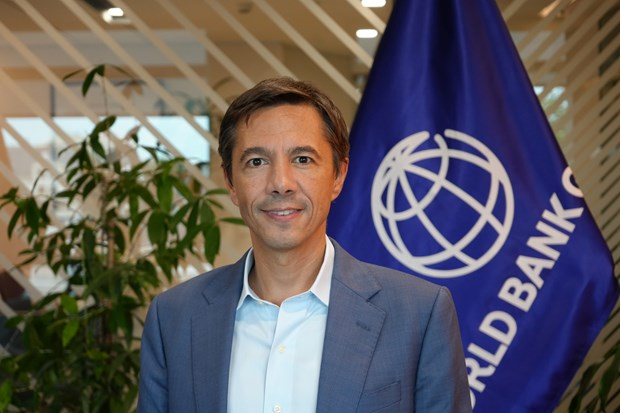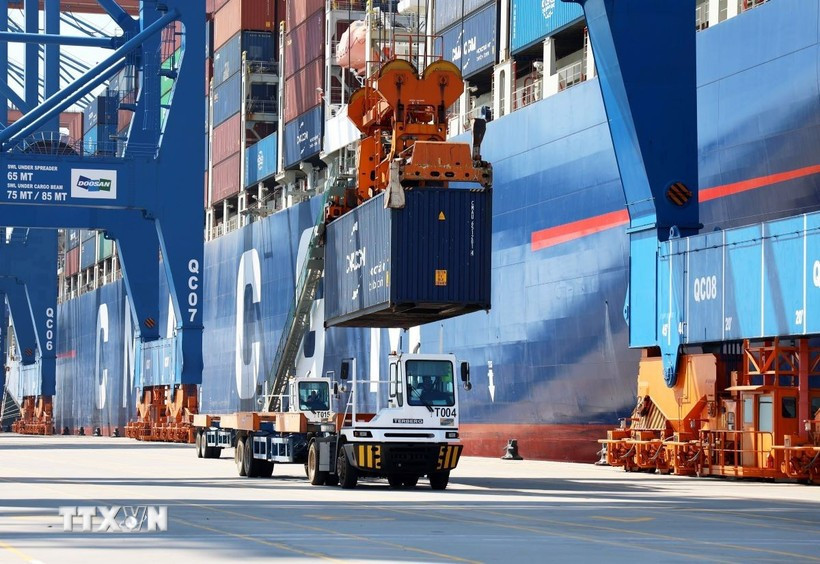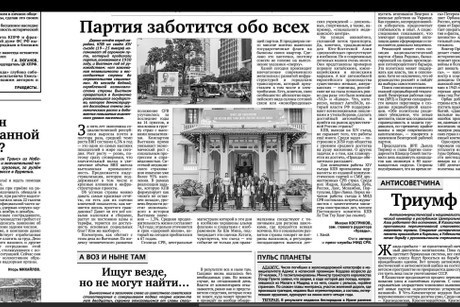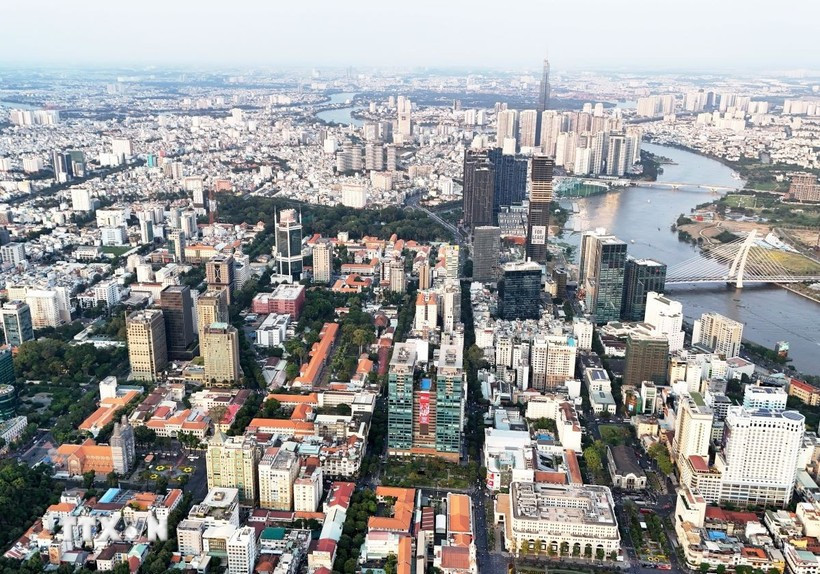Positive outlook for Vietnamese economy: foreign experts
WB official said Việt Nam's economy remains resilient in 2023 meanwhile ADB Country Director points to three main growth drivers of Việt Nam's economy in 2024.

HÀ NỘI — Andrea Coppola, World Bank Lead Economist for Việt Nam, has described Việt Nam in 2023 as resilient, saying that amid global economic slowdown, the Southeast Asian nation was still able to sustain a rate of growth that many other countries in the rest of the world can only dream about.
According to Coppola, Việt Nam is considered one of the most open economies in the world. Its strong trade relations with the rest of the world are a source of strength and success. Việt Nam’s economic performance in 2023 is positive when the very challenging global context is put into consideration.
Economic growth in the US was about 2.5 per cent in 2023, he said, adding that in the European area, economic growth was even weaker at about 0.5 per cent. Despite the global challenges, Việt Nam was able to continue growing at relatively fast rates.
The last part of the 2023 showed signs of economic recovery in the country, he said, noting that this recovery is driven by three main factors: a gradual recovery of external demand for Vietnamese exports, increasing public investment, and resilient private consumption.
Việt Nam also drew a lot of attention in 2023 as media outlets with global reach have published articles to underscore the country’s performance and potential, he said, stressing that the visits of world leaders to Việt Nam also attracted even more the attention of the international community.
According to the economist, Việt Nam is an appealing destination for international investors because of its economic and political stability and its capacity to integrate in the global economy.
He stressed that in such a context, it is critical for the country to continue strengthening the business environment and attract private investors’ attention to fully take advantage of impact of global geopolitical developments on international investment and trade.
After the global slowdown experienced in 2023, global economic growth is expected to decelerate further in 2024, including in key trade partners of Việt Nam such as the US, Coppola said.
The WB hopes that the demand for Vietnamese exports from the rest of the world will recover in 2024, he said, recommending Việt Nam to leverage its internal strength and boost the productivity growth of its domestic economy to transform the challenges provided by the global economic slowdown into an opportunity to further strengthen its economic growth model.
Authorities can play an important role to support the economy through fiscal policy, particularly by accelerating the implementation of transformational public investment and infrastructure projects which are going to strengthen economic growth both in the short term and in the longer term, he said.
According to the expert, Vietnamese people are the greatest source of the country’s internal strength, so he suggested Việt Nam continue promoting the private sector development and boosting productivity by upskilling the labour force and physical capital development through public investments in transport and energy infrastructure that can further strengthen the competitiveness of the private sector.
According to Việt Nam’s Macro and Poverty Outlook released by the WB in October, Việt Nam’s economic growth is expected to slow to 4.7 per cent this year before recovering to 5.5 per cent in 2024 and 6.0 per cent in 2025.

Việt Nam is an appealing destination for international investors because of its economic and political stability and its capacity to integrate in the global economy, according to WB Lead Economist for Việt Nam. — VNA/VNS Photo
Meanwhile, the Asian Development Bank (ADB) maintains its GDP growth rate for next year at 6 per cent, with an expectation that there will be a certain recovery in the external environment, and domestic growth drivers will regain momentum from 2023.
Shantanu Chakraborty, ADB Country Director for Việt Nam, said public investment, domestic consumption, and export recovery will be the three main growth drivers of Việt Nam's economy in 2024.
The official said that an important foundation to maintain growth momentum in the coming time will be macro-economic stability thanks to Việt Nam's continuation of prudent fiscal policies, and proactive and flexible monetary policies applied since 2023, he stated, stressing the need to ensure that they are effectively carried out to create stronger momentum for the economy.
To achieve the 6 per cent growth in 2024, the ADB Country Director advised Việt Nam to speed up public investment in infrastructure, as it will help stimulate economic activities, support industrial, construction and mining businesses, and provide more employment opportunities.
Domestic consumption can be boosted by fiscal measures that encourage demand, and also supported by appropriate monetary policies that keep interest rates at relatively low levels.
To cope with headwinds, Việt Nam's policies need to be more proactive to support enterprises in expanding their markets, and promoting the exploitation of signed free trade agreements.
In the long term, Việt Nam needs to promote public investment in green energy transition, upgrade infrastructure to improve the competitiveness of the economy, and strengthen the foundation to increase resilience and boost sustainable development, Shantanu Chakraborty said.
Assessing the country’s economic situation this year, he said that its economy is showing a strong recovery despite the global economy’s instability and increasing geopolitical tensions.
The Vietnamese Government has taken right steps to solve problems posed by global challenges. To date, the Government has achieved a balance between monetary and fiscal policies to ensure high resilience to the global challenges facing the economy.
The bank recently lowered its growth forecast for Việt Nam this year to 5.2 per cent from the previous 5.8 per cent forecast. However, according to him, Việt Nam's growth rate is quite good compared to many countries in the region.
Source: VNS
Original link







